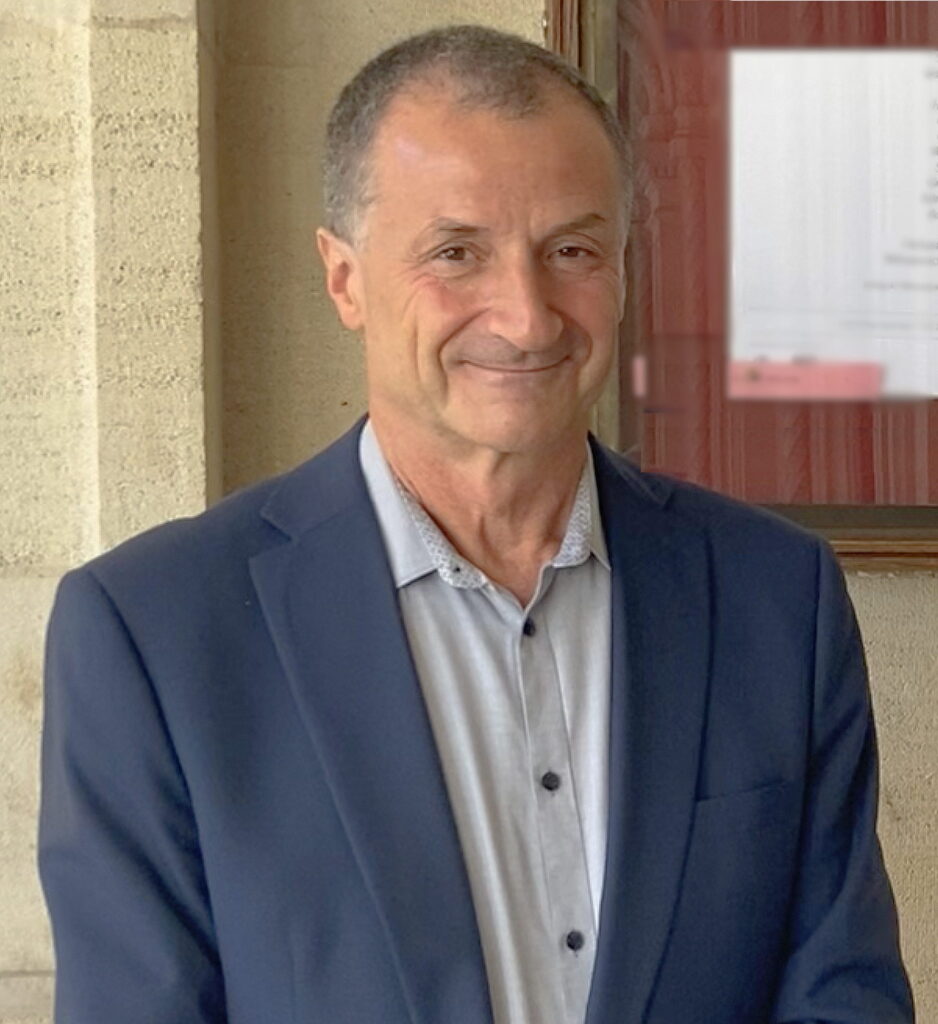Dr. Thomas Widemann is a Staff Scientist at Paris Observatory’s Laboratory of Space and Instrumentation Studies (LESIA) and Senior Associate Professor at University Versailles Saint-Quentin, a branch of Université Paris-Saclay, France. In 2023 Dr. Widemann has been elected corresponding member of the International Academy of Astronautics (IAA), section Basic Sciences.
To study the climate and dynamics of planetary atmospheres, Dr. Widemann developed outstanding techniques combining simultaneous space and ground-based observations, to provide absolute wind measurements and circulation regimes in planetary atmospheres. He demonstrated that observed cloud motions track actual, instantaneous winds, allowing to test atmospheric global circulation models using high resolution visible and IR spectroscopy. Dr. Widemann also led major advancements in planetary sciences through stellar occultation campaigns, such as establishing an upper limit on Uranian moon Titania’s atmosphere and oblateness, and contributing to the discovery of rings around centaur Chariklo.
Dr Widemann’s career achievements have been the basis for international support from ground-based observers to ESA’s Venus Express mission. He is member of the VERITAS Science Team led by Dr. Sue Smrekar of NASA/Caltech’s Jet Propulsion Laboratory in California. VERITAS is the newly selected NASA/Discovery orbiter mission to Venus expected to be launched in 2027. Dr. Widemann is also lead Scientist of EnVision, recently selected as European Space Agency (ESA)’s newest medium-class science mission in its Cosmic Vision program. As a key partner in the mission, NASA provides EnVision’s Synthetic Aperture Radar, VenSAR.
Education
- HDR—Habilitation à Diriger des Recherches, University Versailles-St-Quentin, 2000
- Paris Observatory—Ph.D., Astrophysics & Space Science, 1991
- Orsay/Paris-11 University, France—M.S., Physics, 1985
- Lycée Henri IV, Paris, France.
Contribution to space exploration projects
- Lead Scientist, M5/EnVision Venus orbiter mission proposal studied in partnership with NASA
- Science Team co-Investigator, NASA/Jet Propulsion Laboratory VERITAS Venus orbiter mission
Higher education & heritage management and functions
- Corresponding member, International Academy of Astronautics, section Basic Science
- 2014-2021: Deputy Lead Scientist & Proposal Manager, ESA-NASA M5/EnVision
- 2017- 2020: President, Heritage Council / Conseil du patrimoine, Observatoire de Paris
Past research, higher education & heritage management and functions
- 2017-2018: Directeur du Département de Lettres, Institut d’Etudes Culturelles Internationales, Université de Versailles-Saint-Quentin.
- 2017: Comité scientifique, exposition Globes, Architecture & Sciences explorent le monde, Nov. 2017 – Mars 2018, Cité de l’Architecture et du Patrimoine, Paris.
- 2013-2016: EuroVenus Project Coordinator, European Union Research Agency FP7 G.A. 606798 Project coordinator for the exploitation of ESA/Venus Express data in France, UK, Portugal, Germany and Belgium, 2.18M€
- 2010-2015: Support Investigator (S.I.) for coordinated ground-based telescope observations with ESA/Venus Express orbiter mission
- 2011-2013: French PI, Hubert-Curien PESSOA program, France-Portugal on studying the atmosphere of Venus
- 2010-2012: French PI, Hubert-Curien SAKURA program, France-Japan coordination on Earth-based and Space observations of the atmosphere of Venus
- 2007-2010: Project coordinator, Sciences et Pouvoir : le prince et le savant dans les cours européennes aux XVIIe et XVIIIe siècles, Centre de Recherche du Château de Versailles (CRCV)
Honors/Awards
- Corresponding member, International Academy of Astronautics, section Basic Science (2023)
- Asteroid (20606) Widemann named by the International Astronomical Union in honor of Dr. Widemann (2008). Where is (20606) Widemann?
- George Bidault-de-l’Isle Prize, Société Astronomique de France (1981).







